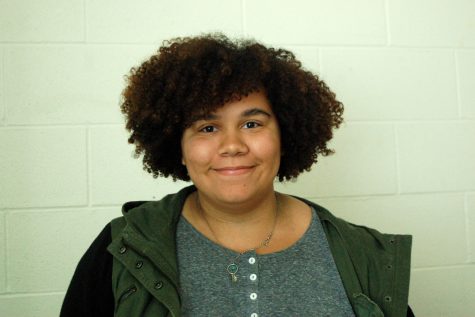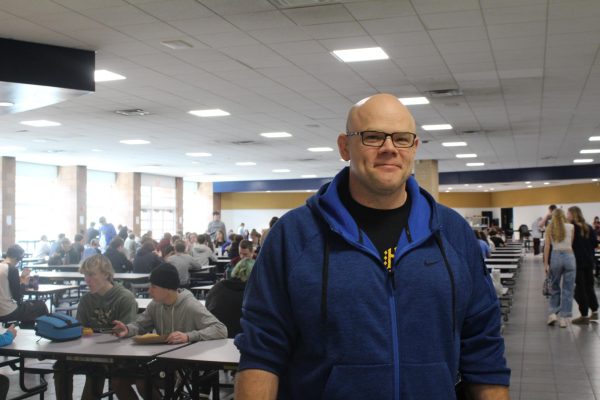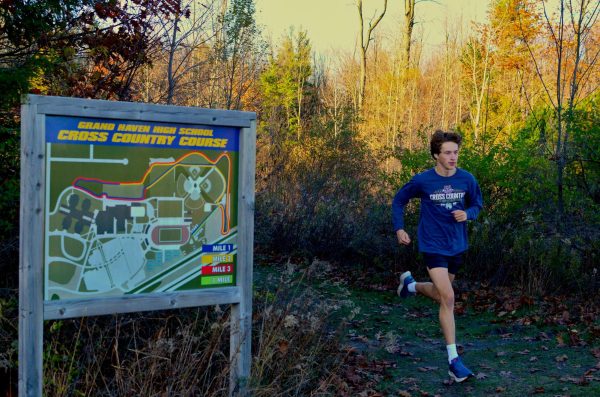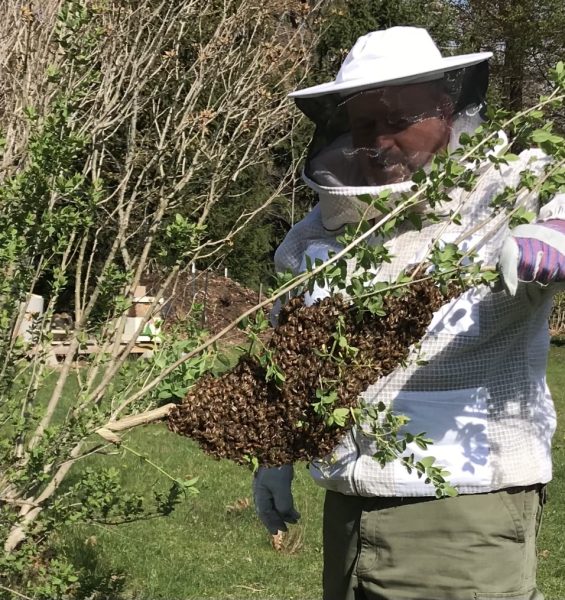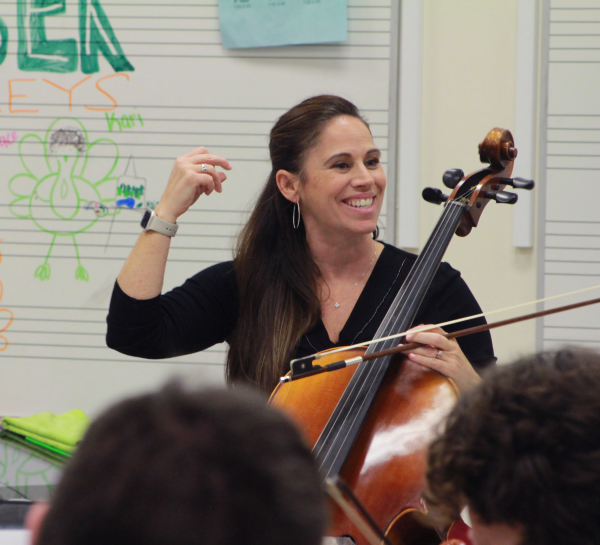Next chapter in family fairytale
After having to jump through unexpected hoops, Kram family is eager to welcome adopted daughter Nasul into their home
March 25, 2015
He doesn’
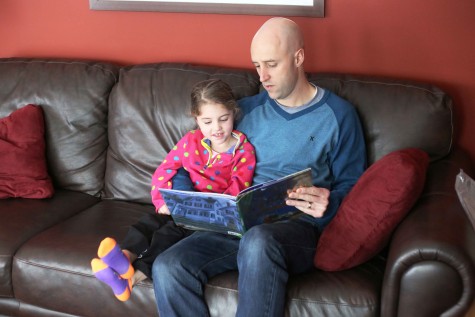
STORY TIME: English teacher Jared Kram’s daughter, Savana, will no longer be an only child. After two years of obstacles, they hopes to be able to take their daughter, Nasul, home in the fall. Nasul will be the next chapter in their family story.
t know if his daughter has seen a white person before.
He doesn’t know if his daughter will willingly leave the Mende tribe of her home in West Africa to accompany him to her new home in Grand Haven suburbia.
He doesn’t know how old she is, though he’s been told she’s three. In his photograph of her, she appears to be around that age. But his sources aren’t always reliable.
But what English teacher Jared Kram does know is that his daughter’s name is Nasul. He knows that she speaks a language called Krio. He knows that she currently lives in Sierra Leone. He knows that her father has died and departed the earth but he and his wife know that as long as Nasul is on it, she will be theirs.
Jared and his wife, Tara, are in the process of adopting Nasul.
They already have a four year old daughter, Savana, and wish to extend their family. They’ve been in the adoption process for a year and a half. While lengthy international adoptions are common and can take several years, the Krams have faced unusual obstacles.
“We started the process by signing paperwork with an agency in September 2013,” Tara said. “The day that we signed our paperwork, the Democratic Republic of Congo (DRC) stopped issuing exit visas to adopted children out of the DRC. We waited for 10 months for the suspension to lift and it never did. There are still over 800 kids in the DRC that have American families that are not able to get them out of the country because of the suspension.”
They didn’t have a referral for a specific child in the DRC yet. They were in the beginning paperwork stages when the agency decided it would be unethical to pair them with a child while the suspension was still in place.
“We just kept waiting, praying and hoping that the suspension would be lifted,” Tara said. “We even talked about moving forward with accepting the referral of a specific child despite the suspension, but then as time went on, it was apparent things were not going to move forward. For a long time, I felt like our child was in the DRC even though I didn’t know who she was yet. It felt to me like we would be abandoning her if we pulled out of the process there.”
The Krams were informed that this regulation was for the safety of the children. There were reports of families adopting children and bringing them back to the U.S. only to give their kids to other families. The program closed for investigation and has yet to reopen. There’s nothing the U.S. government can do to get the children out of the DRC, though many are legally children of U.S. parents.
“The longer the process went on in the DRC, the more we looked at other options,” Tara said. “Nothing felt right until we saw a little girl on a waiting child list for Sierra Leone.”
While Nasul seemed as though she would fit the family as seamlessly as the glass slipper fit Cinderella’s foot, Jared clarifies that the process isn’t a scene from a fairytale.
“When you wake up, it’s not a Disney movie,” Jared said. “It’s a young black girl who has probably never seen a white person. That’s very possible. I don’t know, I don’t mean to generalize or stereotype, but that’s extremely possible. She lives in a pretty remote region where there’s not a lot of white people. She might be presented to us by her mother who is unable to care for her, so is offering her up for adoption.”
They know little about Nasul.
“She might be very scared of us at first,” Jared said. “She might be very unwilling to go with us. And then you’re back on an airplane for a 20 to 24 hour plane ride home with a young girl who’s completely scared; never seen an airplane, never been on an airplane. Everything’s different, different, different.”
Jared explains that in terms of adoption, communication between the foreign and U.S. government is slow. It’s hard to obtain information. Once you do, it’s difficult to determine whether it’s reliable. Health records and age are particularly questionable.
Sometimes there’s nobody around to provide a child’s date of birth and technology might be limited or unavailable. Often times people lie about a child’s age. It’s more common for older kids to be unwanted, so they’ll tell you that a child is younger than they are.
Nasul should be the same age as Savana by the time they bring her home.
“Once we had Savana, I think we realized that we had room in our hearts for kids,” Jared said. “And then having one, you start to consider, ‘Do you have more love to give?’ Once we realized that, we kind of felt like we had more to offer. We thought about having another natural born child to be Savana’s brother or sister. But we decided that if we were going to make that choice, then maybe we’d try to help somebody else out.”
Tara traveled to Sierra Leone on March 7 to attend court that launched a six month fostering period. Though the paperwork establishes them as Nasul’s official guardians, they’re unable to bring her home yet.
“We’re near the end, but the end takes a long time too,” Jared said.
They hope to bring their daughter home this fall and while questions remain, they have faith in their family’s future.
“It doesn’t matter if it is six months or three years,” Tara said. “Ultimately, she will be part of our family forever.”

